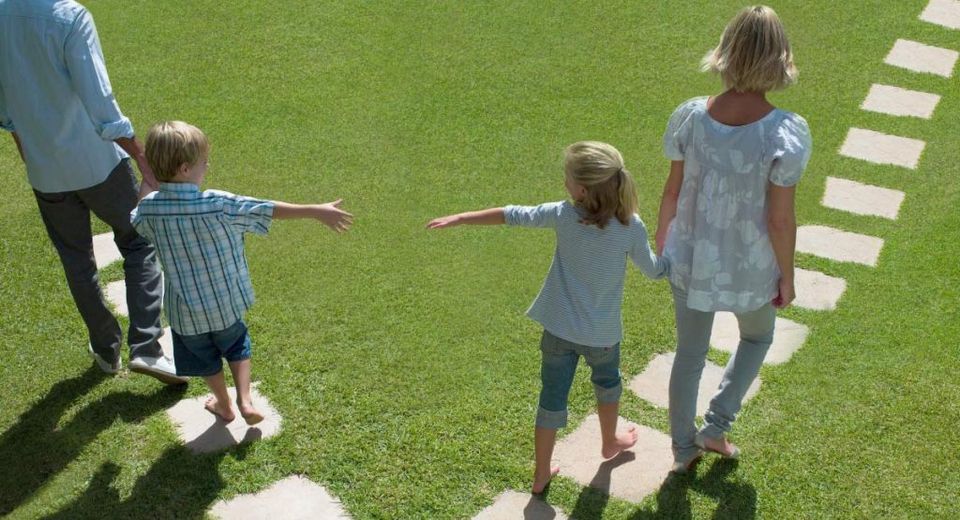An Ugly Divorce Can Affect A Child’s Long-Term Health
When Alexis Moore was three years old, she was thrown into the center of an ugly custody battle. Lawyers argued over her fate as she watched in silent horror. “My voice was never heard,” Moore, remembers. “I became nothing more than a pawn in a game of cat and mouse between my parents and the courts.” Moore is now an attorney and advocate in Sacramento. She believes that the weeks and months of sustained childhood stress took its toll. “I was diagnosed with an ulcer when I was 16, and stress was a contributing factor,” she says. “It was never said to be from the divorce, but it doesn’t take a rocket scientist to understand the toll that…stress will have on the stomach of any person.”
Indeed, several studies have shown that ugly divorces can harm children’s physical health, even in the long-term. One 1993 study reported that family conflicts are “strongly related to illness later in life, as well as with mortality.” A handful of subsequent studies confirmed that kids from broken homes tend to have shorter lifespans (although no studies have proven causation). Other research has established links between ugly divorces, psychological stress, and immune deficiencies, suggesting that kids who spend their childhoods in family court may be more susceptible to disease later in life. Recently, a surprisingly robust study managed to demonstrate that kids from broken homes are more likely to catch colds, even into adulthood.
“Any kind of anxiety caused by divorce or separation can and will affect a child’s physical health,” explains Kathryn Smerling, an Upper East Side psychotherapist focused on family therapy. “It can cause frequent colds, sore throat, psoriasis, stomach aches, inability to fall asleep, eating disorders, it runs the gamut.” She notes that these ailments don’t simply resolve with age and experience. In fact, failing to resolve childhood issues can lead to more physiological issues later in life. “This can lead to IBS, insomnia, depression, anxiety, and other manifestations of something out of balance,” Smerling warns.
Mayra Mendez, a psychotherapist at Providence Saint John’s Child and Family Development Center in Santa Monica notes that stress is mostly a harmless part of our everyday lives, but chronic, intense stress is a different animal. “When stress is experienced chronically, without relief or reprieve, it begins to have negative repercussions upon health,” she explains. “Chronic stress negatively impacts resiliency factors in the body increasing the risk for autoimmune illness, digestive problems, sleep disturbance, hormonal shifts and imbalances, and viral infections. Chronic stress may lead to long-term physical and mental health challenges including heightened risk for depression, anxiety, and emotional dysregulation.”
Naturally, it’s not the ugly divorce that causes illness but the chronic stress that children are exposed to when their parents volley them between custody battles and passive-aggressive weekends. The hallmark study on the subject of how chronic childhood stress impacts health, the Adverse Childhood Experiences Study, concluded that stress can cause flare-ups in chronic conditions like asthma and diabetes. It can also kick off new diseases such as obesity, hypertension, and susceptibility to infection. Perhaps it’s not surprising that researchers would find adults who experienced ugly divorces as kids are more likely to catch colds.
That’s not to say every kid who suffers through a tragic divorce is going to get sick. Jarret Patton, a private practice physician in Reading, Pennsylvania, says that some children draw strength from early adversity. “The effects of chronic stress aren’t always bad,” he says. “Resilience can also develop strongly in many of these children. It is this resilience that builds strong leadership potential into adulthood by having risk tolerance, diverse communication skills and the perspective of the big picture.”
For her part, Moore credits later success as an attorney, in part, to facing those very challenges as a child. “This childhood experience gave me that real life experience most lawyers don’t have,” she says. “I have passion and enthusiasm that you don’t acquire from law study and passing the bar.”
Obviously, no parent wants their kids to succeed in spite of their mairital adversity. Fortunately, studies suggest that there’s a way to mitigate some of the harms of a divorce so that children suffer from the least possible chronic stress—remaining on good speaking terms with your ex. “Studies have shown that children of divorced parents that are amicable and present little friction are healthier and have less emotional scarring than those who have been through a chaotic divorce in which they inevitability are at the center” Smerling says. “A ping pong match is never easy for a child.” Moore puts it bluntly: “Parents need to get their shit together and stop using their children as chattel and pawns in the battle against one another.”
This is not always possible. A parent fleeing an abusive marriage, for instance, wouldn’t want to remain on speaking terms with a dangerous ex. Still, there are ways to help a child adjust. “Make sure that you don’t talk about the other parent behind their back,” Smerling says. “Support the child and leave your personal vendettas to your own therapist.” Mendez adds that simply being present and acting as a good role model can do wonders. “Attend to your children and participate in all aspects of their life,” she says. “And be mindful of modeling positive and effective stress management.”
Moore agrees. “Don’t use the children as a pawn to get back at the other for whatever wrong you are feeling,” she says. “Go get counseling, take on a hobby, do whatever you can to eliminate using your child as a weapon or as a pawn in the courts. The laws don’t allow for children to have a voice in most states until they are well approaching adulthood and, by that time, the damage has already been done.”
Source: https://www.fatherly.com/health-science/ugly-divorce-child-health/






